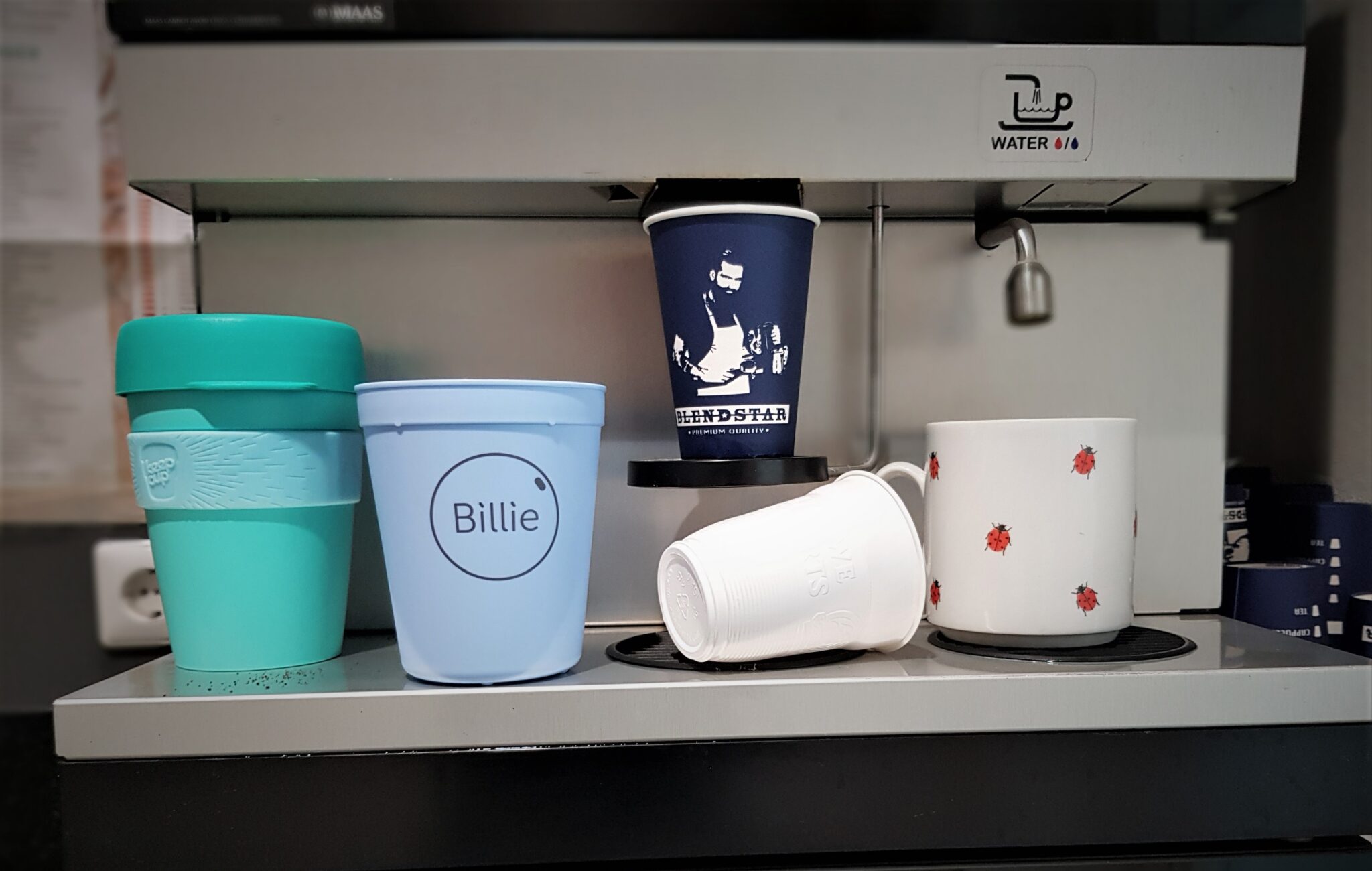Text Luuk Zegers and Clara Vinyeta Cortada
The end is in sight for disposable cups on campus. And not before time, according to Paula Medina of WUR’s Green Office. ‘We have been trying to make the tableware on campus more sustainable for five years, but apart from the Billie Cup, we didn’t achieve much.’
Medina is disappointed in WUR: ‘We should be frontrunners in this field. Unfortunately, we only stop using disposable plastic when forced to by law.’ She is referring to the Single Use Plastic legislation (SUP) which prohibits free disposable cups from 1 July for drinks ‘to go’ and from 1 January 2024 in places where drinks are consumed on the spot. The law also applies to the plastic-coated paper cups next to coffee machines in offices.
Plastic or paper
Erna Maters, Social Responsibility policy officer at Facilities & Services, understands the Green Office’s frustration. ‘Plastic cups have no place on a sustainable campus,’ she says. ‘At the same time, the impact of stopping using those cups is very small compared to sustainability measures in areas such as energy or mobility. You have much more impact if you can reduce the use of fossil-fuel cars or the number of flights. Even just looking at catering, what is on the menu is more important than the tableware you use.’
Plastic cups have been a thorn in the side for many people. And yet they are more recyclable than paper cups, which plastic-coated. Maters: ‘Separating the paper from that coating requires additional processing, which increases the environmental impact.’ Which cup is the most sustainable depends on many factors, such as how often cups are reused.
Contracts
So, when it comes to sustainability, no cup stands head and shoulders above the rest, says Maters. ‘If everyone now buys a new cup, that has a big environmental impact too. And repeatedly washing them with hot water and detergent is not very sustainable either.’ A tip from Maters: use a cup you already have, or get one from the charity shop. ‘And don’t rinse it after every drink, but at the end of the day, preferably with cold water. Or use a cup you can return, like the Billie Cup.’
Maters is pleased to see the end of disposable crockery, but also understands that it was not easy to reach this point any earlier. ‘That is mainly due to the long-term contracts we have. In recent years, each location had its own caterer and they all fulfil their contracts in their own way. For example, the contract might say disposable plastic cutlery is not allowed, but you’d find some caterers offering disposable wooden cutlery. Although wood is organic, it can’t go into the organic waste bin but gets disposed of with the residual waste. And the problem with metal cutlery is that it disappears because some users take it home.’
Annet de Haas, head of Location Facilities, also says WUR was keen to get rid of disposable crockery earlier. ‘But you can’t arrange that sort of thing overnight. We had eight-year contracts for the coffee machines. You can’t tell a company halfway through a contract period that they must stop using disposable cups if that’s not in the contract.’
In the Vision for Food & Beverage at WUR, the basis for the new catering tender, there is a strong focus on avoiding needless packaging and using reusables or glass, says De Haas. ‘If plastic is still needed for reasons of food safety or hygiene, we opt for variants with the lowest environmental impact.’

 Photo Roelof Kleis
Photo Roelof Kleis 

